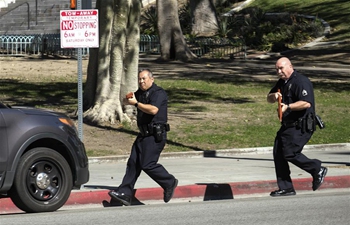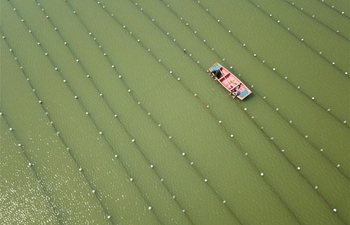WASHINGTON, March 18 (Xinhua) -- Dormant herpes viruses became reactivated in more than half of the studied astronauts who traveled in space, according to a recent research by U.S. space agency NASA.
To date, 47 out of 89 astronauts on short space shuttle flights, and 14 out of 23 astronauts on longer International Space Station missions shed herpes viruses in their saliva or urine samples, said Satish Mehta, a study author and a researcher at Johnson Space Center.
"These frequencies - as well as the quantity - of viral shedding are markedly higher than in samples from before or after flight, or from matched healthy controls," Mehta said in a statement published on Friday.
While this does not often develop symptoms like rash, virus reactivation rates increase with spaceflight duration and could pose health risks on future missions to Mars and beyond, the statement said.
Researchers explained that virus reactivation is mainly the result of an increased level of stress hormones in astronomers during spaceflights. Such hormones, including cortisol and adrenaline, are known to suppress people's immune system.
Astronomers' immune cells may sometimes remain less effective for up to 60 days after spaceflights. Thus, continued virus shedding may affect not only themselves, but immunocompromised or uninfected contacts on Earth, like infants.
So far, this viral shedding has been typically asymptomatic. "Only six astronauts developed any symptoms due to viral reactivation," said Mehta. "All were minor."
To guarantee the safety of deep-space explorations in the future, Mehta said that their present focus is on developing targeted treatment plans for individuals suffering the consequences of viral reactivation.













